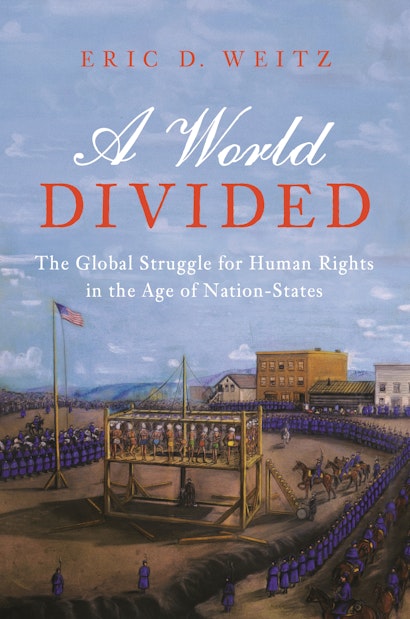In A World Divided, Eric Weitz looks at human rights on a global scale. History is full of human rights tragedies and abuses, and it can be difficult to feel hopeful about the current state of affairs with those atrocities in mind. But there are success stories as well. Here, Weitz shares a few exceptional human rights advances in recent history.
Abolition of slavery
From today’s vantage point, the abolition of slavery seems inevitable. But it required hard political struggle to put an end to an institution that had existed through the millennia of recorded human history. Brazil, in 1888, was the last country in the Western hemisphere to abolish slavery. It came about because of fierce black resistance through rebellion and flight, which made Brazilian society continually unstable; the organized abolitionist movement; and the decline of the sugar economy. Brazilian history, like the other histories depicted in A World Divided, shows that human rights advances occur because of a confluence of factors and are not just the work of heroic activists.
The invention of minorities
Minorities are the creation of the nation-state, the dominant political form of the modern era. Human rights activists today generally see the recognition of minorities as a great advance, enabling minority groups, however they are defined, to lay claim to rights of all sorts. But in fact the recognition of minority status is highly ambivalent. The quintessential minorities, Armenians and Jews, expected that recognition by the international community would ease the discrimination and violence they suffered in Eurasia. However, minority status led to the greatest tragedies in the histories of both groups, the Armenian Genocide and the Holocaust. In the era of nation-states — the era in which we still live — minorities are almost always an irritant of some sort, groups that disrupt the supposed unity of the nation.
Namibian independence
In 1990, Namibia finally became independent of South Africa and a democracy. In the first decade of the twentieth century, its population had suffered a genocide under German colonizers and then repression, removal, and apartheid under South African control from 1920 onward. Despite the killing of probably 80 percent of their people in the genocide, the Herero managed to recover and re-build their culture and society. In the 1960s, the Ovambo people in the north launched a liberation struggle. Whatever the limitations in Namibia’s recent history, the violation of human rights by the liberation armies and the severe inequality and poverty that define the country today, it is at least a democracy with human rights open to all members of the population, not just the white elite.
United Nations Covenants
On December 16, 1966 the United Nations passed two international human rights treaties, the Covenant on Political and Civil Rights and the Covenant on Economic, Social and Cultural Rights. Along with the Universal Declaration of Human Rights, passed on December 10, 1948, these are the landmark documents of the post-1945 human rights era. However much we still witness atrocities and human rights violations around the globe, these treaties established an international standard. Human rights activists around the world, from the Soviet Union to Argentina to South Korea and beyond, have staked their claims to dignity, respect, and human rights on these treaties against the violations perpetrated by their own governments.
Eric D. Weitz is Distinguished Professor of History at City College and the Graduate Center, City University of New York. His books include Weimar Germany: Promise and Tragedy and A Century of Genocide (both Princeton). He lives in Princeton and New York City.

